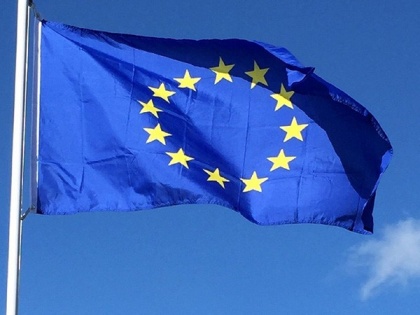European Parliament strips Greek Neo-Nazi lawmaker of immunity
By ANI | Published: April 28, 2021 11:52 AM2021-04-28T11:52:07+5:302021-04-28T12:00:08+5:30
The convicted Greek neo-Nazi lawmaker Ioannis Lagos was stripped of his immunity as a member of the European Parliament on Tuesday, clearing the way for his extradition to Greece months after he was sentenced in a landmark trial.

European Parliament strips Greek Neo-Nazi lawmaker of immunity
The convicted Greek neo-Nazi lawmaker Ioannis Lagos was stripped of his immunity as a member of the European Parliament on Tuesday, clearing the way for his extradition to Greece months after he was sentenced in a landmark trial.
According to The New York Times (NYT), Lagos was a leading member of the criminal orgzation Golden Dawn. The group is now defunct, but in its heyday, it formed a political party that was the third-largest in the Greek Parliament.
He told The New York Times in written comments this year that he was planning to flee to a "European country" where his rights would be protected, but on Tuesday, the Brussels public prosecutor's office said that the lawmaker "was deprived of his liberty today at midday."
The office gave no further comment.
The decision by the European Parliament, announced Tuesday morning after a secret ballot held a day earlier, comes after months of delays over protocol procedures and because of the Covid-19 pandemic.
He was elected to the European Parliament as an independent candidate while his trial for forming and running a gang was continuing in 2019. The lawmaker was alongside dozens of other leading members of Golden Dawn and was sentenced to 13 years in prison for running a criminal orgzation, but he was protected until now by immunity afforded to members of the European Parliament.
"Golden Dawn rose to prominence a decade ago, systematically targeting the European Union and migrants, especially Muslims, during the financial crisis that devastated Greece's economy and society," NYT reported.
The trial in Greece lasted more than five years and is regarded as one of the most important cases against neo-Nazis in contemporary Europe, where forces of the far-right became empowered during the financial crisis and further emboldened after the refugee crisis of 2015-16.
One of the leading members of the party, Christos Pappas, "remains on the run" after his conviction.
According to NYT, Lagos has been fighting to hold on to his immunity and avoid extradition to Greece to serve his sentence, while also claiming that the case against him is political and that he's being prosecuted for his political thoughts, not his deeds.
The decision by the European Parliament was welcomed by left-wing Greek politicians. "The neo-Nazi Lagos no longer has immunity at the European Parliament," Nasos Iliopoulos, the spokesman for Syriza, the main opposition party in Greece, wrote on Twitter. "The Greek authorities should act quickly so that we don't experience the fiasco with Christos Pappas."
However, The European Parliament has come under criticism for taking months to deliberate on the waiver of the neo-Nazi lawmaker's immunity and for refusing to prioritize his case over other pending immunity cases of European lawmakers wanted in their home countries over smaller legal matters.
But the parliamentary committee overseeing the process defended the pace and prioritization of cases as partly a matter of slowed-down deliberations because of the coronavirus outbreak and partly an effort to meticulously follow protocol to avoid any charges of bias.
NYT reported that the committee recommended that the European Parliament waive Lagos's immunity last week, in an anonymous vote of 22 to 2, and the full Parliament supported that decision in a vote by 658 to 25, with 10 abstentions.
David Sassoli, the president of the European Parliament, told The New York Times that he was "satisfied" with the decision taken by "an overwhelming majority" of the lawmakers.
"It is now up to competent national authorities in Greece to conclude the criminal proceedings and bring to justice every member of this neo-fascist and the criminal group that has shaken Greek society for far too long," he added.
Theodoros Chronopoulos, a spokesman for the Greek police, said that once returned to Greece, Lagos would be sent to prison immediately to serve his sentence.
"Because Lagos was detained in Belgium, where the Parliament is based most of the time and where he is a resident, it is now up to a national court there to rule on Greece's request to extradite him," according to NYT.
The judicial proceedings in Belgium could take months. Should the Belgians block a request, Lagos could continue to sit in the European Parliament without the immunity rights, but that seems highly unlikely, as reported by the news outlet.
( With inputs from ANI )
Disclaimer: This post has been auto-published from an agency feed without any modifications to the text and has not been reviewed by an editor
Open in app